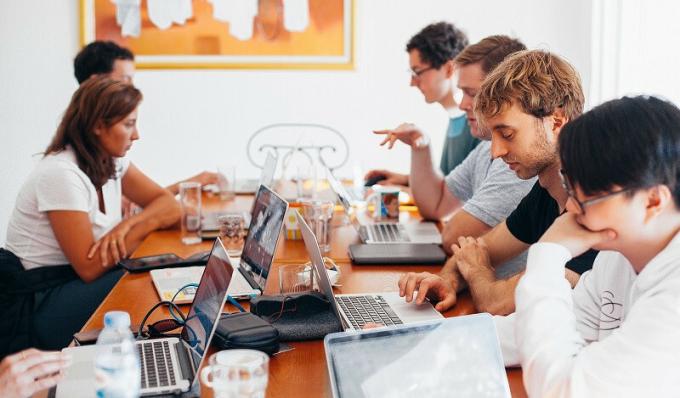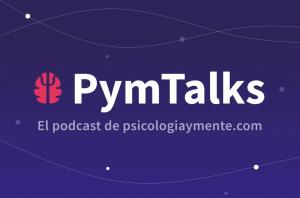The Impact of Anxiety on Personal Organization
Imagine the following situation of this person we will call Ana. She has a great job and a busy life; However, for some time she has felt overwhelmed with so many commitments and pending issues to deal with, and she does not know how to cope in these situations.
For Ana the activities are all presented at the same time. She carries them out, at home, at work, in any space and time that she gets. There are many times that she fails to fulfill responsibilities and that causes problems, until there comes a point where she does not know what to do; she feels distrustful, afraid, and she feels that she will no longer be able to continue with everything.
She starts crying, she feels frustrated and although she tries to organize herself, she feels nervous, palpitations and thinks that everything is going to start to go wrong.
She believes that this is affecting her interpersonal and partner relationships, and she does not know what to do, lately, she feels aggressive, serious and without spirit.
- Related article: "5 emotional management techniques to control stress"
The relationship between anxiety and Personal Organization
This fictional description is nothing more than the simple representation of what we can all come to feel at some point with our day-to-day tasks. Can anyone help and improve with all the symptoms? Should symptoms be treated first, then organizational skills? Some could probably give her a hand in helping her, specifically in organizing time, and maybe doing some of the things she needs to do until she feels better.
When a person goes to the psychologist, he usually identifies and describes his symptoms and her general condition. After inquiring and conducting the initial interview, psychological evaluations, a high level of anxiety can be identified and, additionally, it can be determined that she does not have organizational tools, in addition to a large number of commitments that can compromise mental and physical health.
Now, the reader must be thinking that the ideal is for her to learn to organize herself, offering techniques and tools for time management and organization, to be autonomous and feel in control in the face of this avalanche of commitments and the large number of demands from the environment, as well as the multiple tasks. It is the right thing to do, but this is not enough.
The main objective is that the person learn techniques that allow them to cope with environmental stress, as well as manage the symptoms that are generated. This is why I recommend the development of Combative Coping strategies and Preventive Coping Strategies.

- You may be interested in: "What is anxiety: how to recognize it and what to do"
What is Combative Coping and Preventive Coping Strategies?
Combative Coping strategies refer to a reaction to some stressful stimulus and involves suppressing those stress-generating stimuli, such as disorganization.
In addition, it is essential that the person learn strategies for organizing tasks and time, as well as how to structure and discriminate between urgent and important tasks using the Eisenhower Matrix.
Although this would only be part of what would be done in the consultation: other aspects of anxiety would be evaluated. The objective is for the individual to develop psychological resources with the help of the tools provided for the control of anxiety. Coping with the situation will consist of learning new organizational habits, and then the individual will perceive that he has the control to organize.
On the other hand, preventive coping strategies refer to coping styles to prevent them from appearing stressful stimuli, or help the body respond to it, that is, anticipate and avoid the negative consequences of stress, by example.
- Related article: "Coping strategies: what are they and how can they help us?"
The Locus of Control
Here arises a new concept of great importance, the concept of Internal Locus of Control, which is the individual's perception that her behavior starts from an internal source.
Secondly, the External Locus of Control It occurs when the person perceives that the beginning of her behavior originates externally, that is, he does not have control over her. This is important, since depending on whether the person perceives their locus of control, internal or external, the person defines their autonomy and subjective perception, feeling more or less empowered.
- You may be interested in: "What is the locus of control?"
Keys to personal empowerment
When a person feels empowered, aware of their abilities and with the perception of Internal Locus of Control, anxiety decreases and they feel confident to face it.
In the opposite case, when the person has a predominant profile of External Locus of Control, he does not even try to do changes because she feels that nothing she does will work, since she thinks that external events have control over she, feeling that their capacities overflow.
- Related article: "Parkinson's law and procrastination problems"
The role of procrastination
I cannot fail to mention, albeit briefly, the concept of procrastination, that is to say, the tenure to postpone the responsibilities or the tasks that we had proposed to fulfill.
If the person procrastinates in the planned activities, it may be due to several factors: she is afraid to think that she will not be able to carry out the activity, there is a lack of competencies to carry out a task, she has difficulty making decisions, she feels that her creativity is blocked, or her expectation of effectiveness is not reasonable. All of this contributes to the exacerbation of anxiety.
Therefore, procrastination is another issue to work on when organizing and controlling anxiety. But read me in the next article about this topic.
She is confident and takes the first step in your organization and anxiety control.


